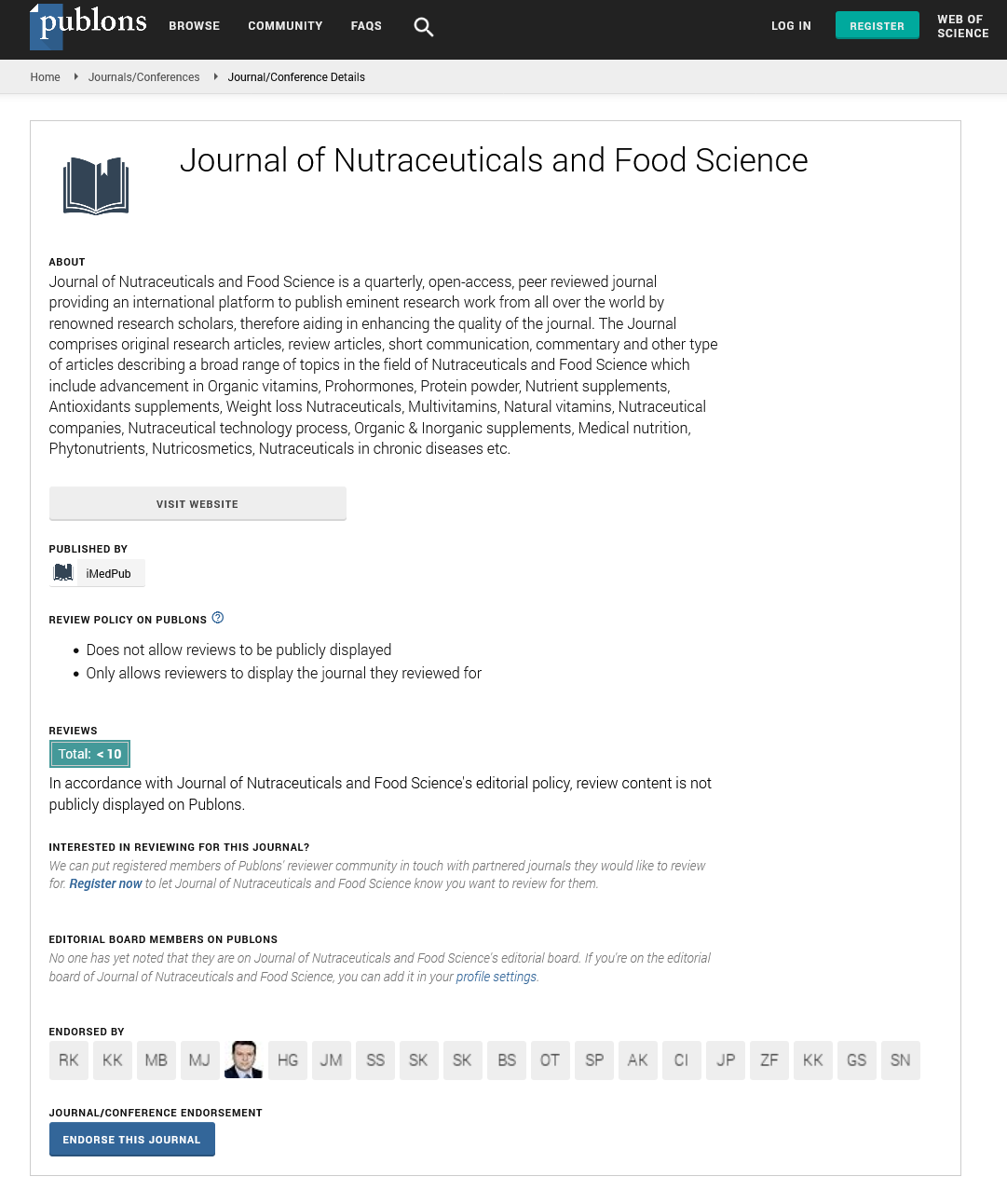Abstract
Germination and Fermentation of Soybeans: Two Healthy Steps to Release Angiotensin Converting Enzyme Inhibitory Activity Compounds
Background and objective: Soybean is one of the most important grains with high proteins, good quality edible oils, appreciable amount of minerals and vitamins. Due to some disadvantages soybeans’ compounds affecting the flavour, odour and stability, different types and levels of processing are considered to make better products with healthy properties. Hypertension (high blood pressure) is one of the modern world diseases, which increases the risk of serious human health problems. There are several systems in humans’ body e.g. angiotensin converting enzyme regulator to blood pressure control. The aim of the present review is to report the effect of germination and fermentation on the concentration of bioactive compounds with angiotensin converting enzyme inhibitory properties. Results and conclusion: Many scientific research has demonstrated that germination (sprouting, also known as malting) and fermentation are two effective and inexpensive technologies improving soybean quality. During these two processes, anti-nutritional and bioactive compounds affecting human health e.g. Anti-hypertension components have been removed and released, respectively. Furthermore, studies have shown effect of soybean isolated compounds to inhibit angiotensin converting enzyme. Therefore, soybean germination and fermentation could affect the concentration of bioactive compounds with angiotensin converting enzyme inhibitory properties. Conflict of interest: The authors declare no conflict of interest
Author(s):
Seyed Hadi Razavi
Abstract | Full-Text | PDF
Share this

Google scholar citation report
Citations : 393
Journal of Nutraceuticals and Food Science received 393 citations as per google scholar report
Journal of Nutraceuticals and Food Science peer review process verified at publons
Abstracted/Indexed in
- Google Scholar
- Publons
- Secret Search Engine Labs
Open Access Journals
- Aquaculture & Veterinary Science
- Chemistry & Chemical Sciences
- Clinical Sciences
- Engineering
- General Science
- Genetics & Molecular Biology
- Health Care & Nursing
- Immunology & Microbiology
- Materials Science
- Mathematics & Physics
- Medical Sciences
- Neurology & Psychiatry
- Oncology & Cancer Science
- Pharmaceutical Sciences


